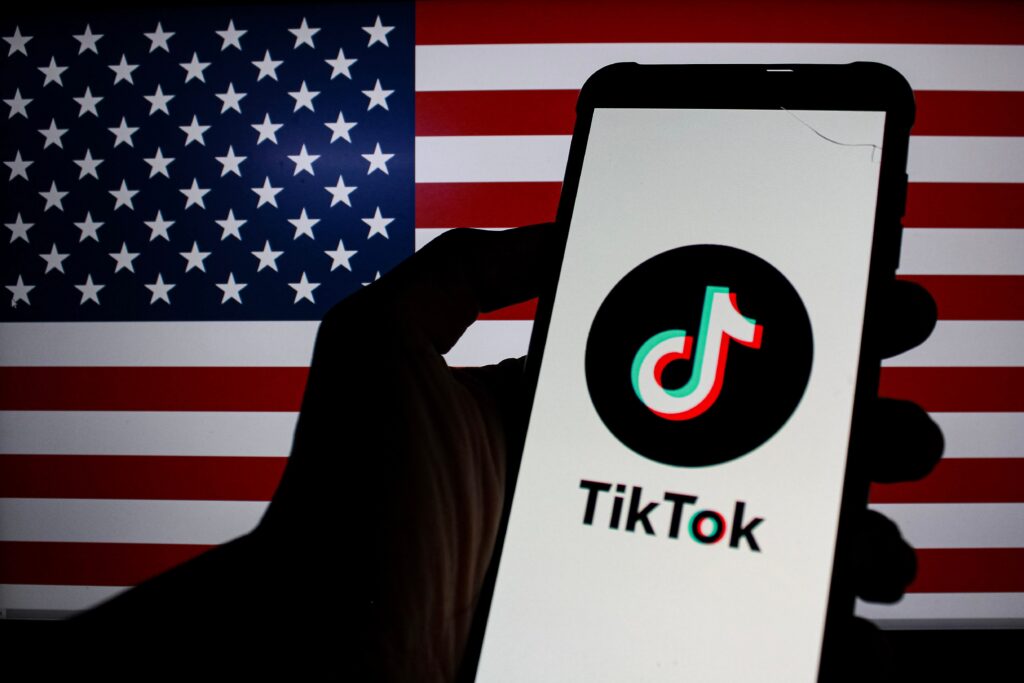Debating National Security Risks
The Supreme Court on Friday examined sharply opposing views about banning TikTok, a platform used by 170 million Americans. Chief Justice John Roberts raised concerns about ByteDance, TikTok’s Chinese parent company, allegedly encouraging division among Americans.
“If that’s their goal, they seem to be succeeding,” Roberts remarked, prompting laughter in the courtroom.
Most justices appeared aligned on the issue, showing more concern for national security risks than TikTok’s arguments about First Amendment violations. The court’s focus reflected the Biden administration’s stance that TikTok must sever ties with ByteDance or face a U.S. ban.
Solicitor General Elizabeth Prelogar defended the sell-or-ban law passed by Congress, citing potential misuse of data by the Chinese government. The impending divestment deadline, set for January 19, loomed large over discussions. Justice Brett Kavanaugh emphasized the potential long-term risks of China using collected data for espionage and blackmail.
Control Over TikTok Sparks Dispute
The debate also centered on the level of control ByteDance—and by extension, China—exerts over TikTok. Justice Neil Gorsuch questioned the evidence, stating, “Someone has to be right and someone has to be wrong.”
TikTok’s lawyer, Noel Francisco, argued the company could resist undue pressure from ByteDance or the Chinese government, even if business decisions are influenced by the parent company. He maintained this dispute wouldn’t alter the broader legal analysis.
Trump’s Potential Role in Enforcement
Justice Kavanaugh explored whether President-elect Donald Trump might choose not to enforce the law if it takes effect after his inauguration. Prelogar noted presidents generally have discretion over enforcement but suggested Trump would likely review updated national security data before deciding.
Concerns arose about how companies like Apple or Google would respond. Kavanaugh noted they might refuse to host TikTok without more robust assurances of non-enforcement, given the law’s severe penalties.
Justice Samuel Alito raised the possibility of temporarily halting the law. Prelogar cautioned against delaying the statute unless TikTok had a strong chance of success, which she doubted based on current First Amendment arguments.
First Amendment Concerns
TikTok and its content creators argued the ban infringes on First Amendment rights. Francisco asserted the algorithm, central to TikTok’s success, ensures a tailored content experience. Losing it through a forced sale would undermine the platform’s ability to serve users effectively.
Jeffrey Fisher, representing TikTok creators, added that Americans historically retained the right to engage with foreign publishers. He dismissed claims that potential content manipulation justified restricting speech.
Prelogar countered that the First Amendment wasn’t at issue since Congress targeted TikTok’s Chinese ownership, not specific viewpoints. She argued all current content could continue if the platform were sold.
Alternatives to Address Security Concerns
TikTok’s legal team proposed less drastic measures to address the government’s security concerns, such as data-sharing restrictions or user warnings. Prelogar dismissed these suggestions as ineffective, comparing generic warnings to unhelpful cancer disclaimers on products.
She questioned TikTok’s claim that a “true firewall” could block data sharing with ByteDance, citing no such proposal during earlier negotiations. Justice Alito also wondered if TikTok’s unique algorithm justified the platform’s dominance, suggesting competitors could step in to fill the void.
Fisher argued competitors had tried and failed to replicate TikTok’s success, indicating its algorithm’s irreplaceability.
TikTok Users Face Uncertain Future
While justices debated, TikTok users contemplated life without the platform. Callie Goodwin, a South Carolina-based small business owner, relied on TikTok for 98% of her sales. She feared a ban could jeopardize her business, recalling a holiday season where she sold $30,000 worth of products in nine days.
Meanwhile, some users, like college student Eli Benson, saw the potential ban as an opportunity to reduce their social media usage. “Maybe this is my sign to be done,” Benson reflected.
The Supreme Court’s decision could profoundly reshape the digital landscape and impact millions of Americans who rely on TikTok for connection, commerce, and creativity.


